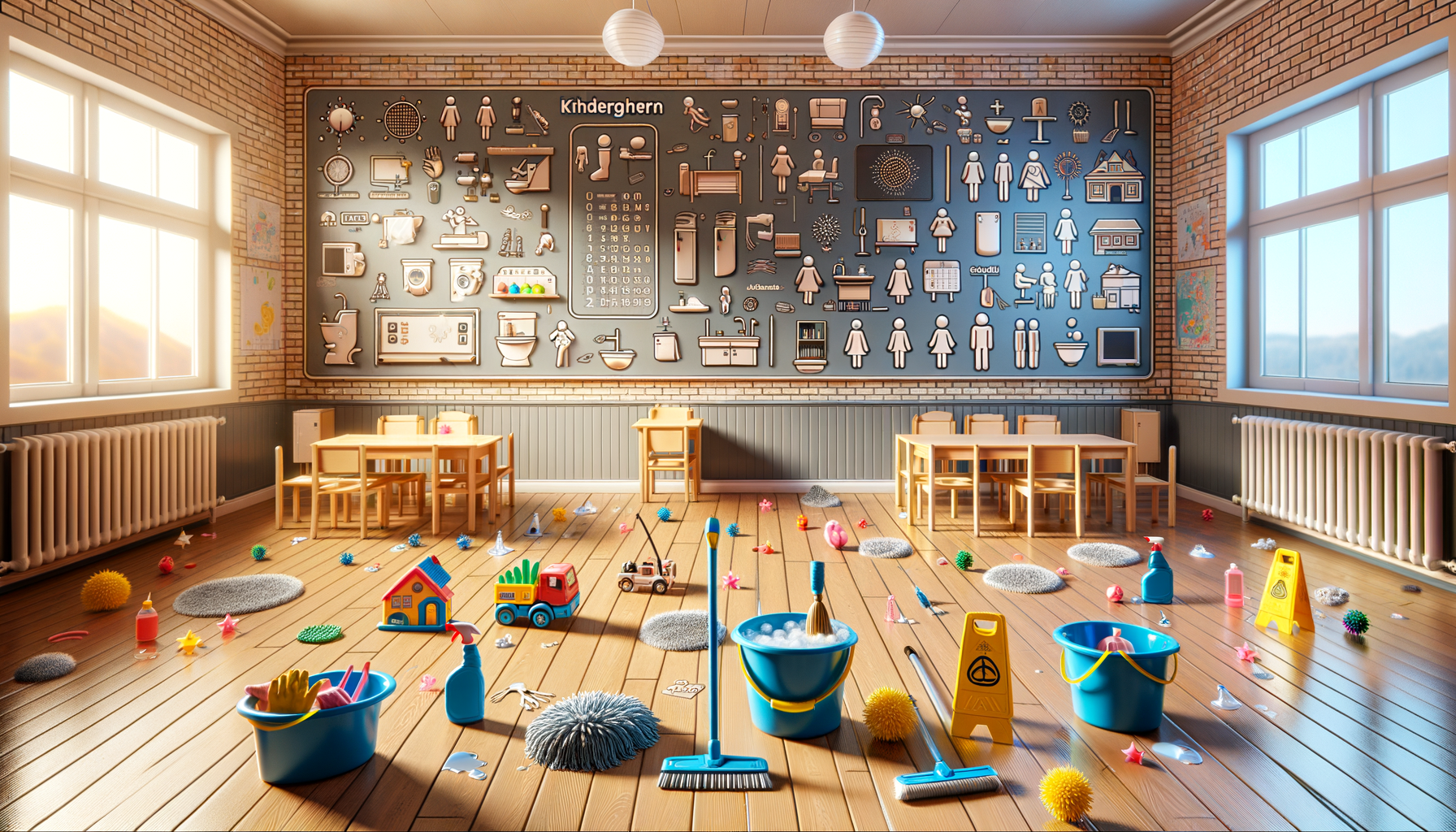Introduction to Kindergarten Cleaning Jobs
Maintaining a clean and hygienic environment in kindergartens is crucial for the well-being and development of young children. These early learning spaces are where children spend a significant portion of their day, engaging in activities that foster growth and learning. As such, the role of cleaning staff in these settings cannot be overstated. This article explores the importance of kindergarten cleaning jobs, highlighting their impact on health, safety, and the overall learning experience.
The Importance of Cleanliness in Early Childhood Settings
Cleanliness in kindergartens is essential for preventing the spread of illnesses and ensuring a safe environment for children. Young children are particularly susceptible to infections due to their developing immune systems. Therefore, maintaining a clean environment helps minimize the risk of outbreaks. Regular cleaning routines, including disinfecting surfaces and ensuring proper waste disposal, are vital practices that support children’s health.
Moreover, a clean kindergarten contributes to a positive learning atmosphere. Children are more likely to engage in activities and explore their surroundings when they feel safe and comfortable. Clean environments also support teachers in delivering effective lessons, as they are less likely to be distracted by health concerns or clutter.
Key Responsibilities of Kindergarten Cleaning Staff
Cleaning staff in kindergartens play a multifaceted role that extends beyond mere tidying. Their responsibilities include:
- Regularly disinfecting play areas and classroom surfaces to prevent germ transmission.
- Maintaining clean and functional restroom facilities for children and staff.
- Ensuring that all toys and learning materials are sanitized regularly.
- Managing waste disposal and recycling to promote environmental responsibility.
These tasks require attention to detail and an understanding of the specific needs of young children. Cleaning staff must be aware of the materials used in kindergartens and the safest cleaning products to use to avoid harmful chemical exposure.
Challenges Faced by Cleaning Staff in Kindergartens
Despite their critical role, cleaning staff in kindergartens often face several challenges. One of the primary challenges is the constant need to balance thorough cleaning with the presence of children. Cleaning staff must work efficiently around the daily activities of the kindergarten, often requiring them to perform tasks during off-hours or breaks.
Additionally, the use of child-safe cleaning products can sometimes limit the effectiveness of certain cleaning agents, requiring staff to employ alternative methods to maintain hygiene standards. The physical demands of the job, combined with the need for meticulous attention to detail, can also contribute to workplace stress.
Conclusion: The Value of Kindergarten Cleaning Jobs
Kindergarten cleaning jobs are integral to the functioning of early childhood education settings. By maintaining a clean and safe environment, cleaning staff support the health and development of young children, allowing them to thrive in a conducive learning atmosphere. As we continue to recognize the importance of these roles, it is essential to provide adequate support and resources to ensure that cleaning staff can perform their duties effectively and safely.
In conclusion, the dedication and hard work of kindergarten cleaning staff are vital components of a successful early learning environment. Their efforts help create the foundation for healthy, happy, and well-educated children.




Leave a Reply